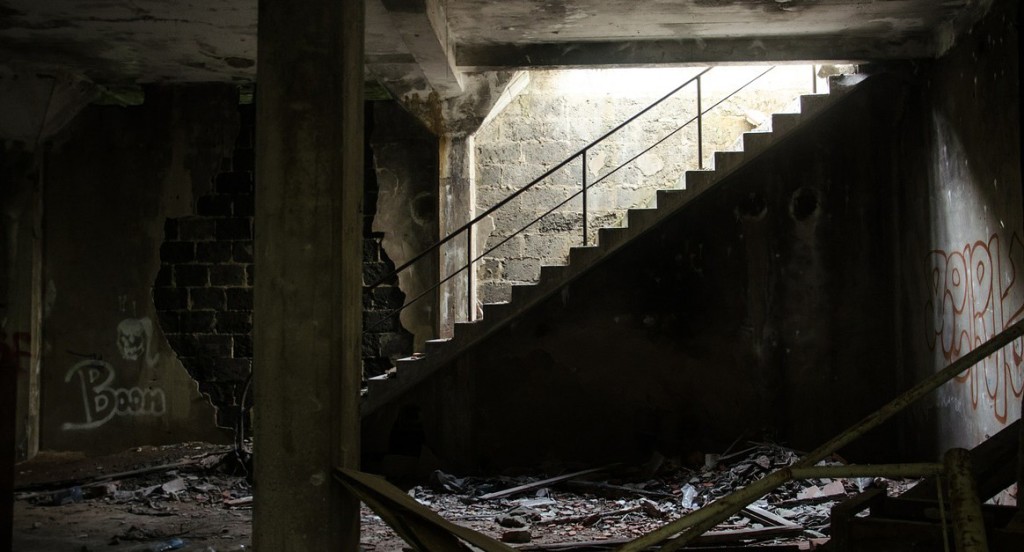The stereotypes would have us believe that those who see a therapist are broken, crazy, weak, incapable or lesser-than. My experience has been the opposite. Those I work with are quite strong in many ways, not least in their willingness to face the pain and suffering that comes with change. They have more than the usual ability to be vulnerable, and by owning their brokenness, show forth the glory of humanity. (More on that here) They have often given me the gift of seeing the world through their eyes, and it can be a beautiful view. Today I celebrate those shared moments by sharing some of the images or metaphors with which they have described their experience. *
 Suffering and Sadness as Stairs to Freedom Read More →
Suffering and Sadness as Stairs to Freedom Read More →

 By our nature as humans, we need others. Giving and receiving help is as human as breathing. God looked at Adam and said (essentially): “You’re gonna need some help.” So He provided Adam with a helpmate. Across our lifespan, we turn to others for help: to our parents for nurturing, our teachers for education, our doctors for all our physical ills. We turn to spouses and best friends to soothe us during the bruises of life, and we turn to our church community to revive our weary, broken, wayward souls. We do not think twice about seeking help from these people, but there is one person from whom many people still hesitate to seek help: a therapist (a.k.a psychologist, psychotherapist, or counselor).
By our nature as humans, we need others. Giving and receiving help is as human as breathing. God looked at Adam and said (essentially): “You’re gonna need some help.” So He provided Adam with a helpmate. Across our lifespan, we turn to others for help: to our parents for nurturing, our teachers for education, our doctors for all our physical ills. We turn to spouses and best friends to soothe us during the bruises of life, and we turn to our church community to revive our weary, broken, wayward souls. We do not think twice about seeking help from these people, but there is one person from whom many people still hesitate to seek help: a therapist (a.k.a psychologist, psychotherapist, or counselor).  We are all broken. We think of this as our biggest liability, but the reality is that the beauty in our brokenness is overwhelming.
We are all broken. We think of this as our biggest liability, but the reality is that the beauty in our brokenness is overwhelming. It’s no secret that children growing up in our society face a multitude of challenges. They face the ubiquitous presence of alcohol and drugs, media saturated with sexuality, and a culture that struggles to plausibly stand behind basic values. Not to mention a high likelihood that they will not make it to adulthood with both parents in the same stable marriage. As parents, we want to find ways of shepherding our children through these dangers, and we often go to great lengths to provide worthwhile, productive and affirming experiences.
It’s no secret that children growing up in our society face a multitude of challenges. They face the ubiquitous presence of alcohol and drugs, media saturated with sexuality, and a culture that struggles to plausibly stand behind basic values. Not to mention a high likelihood that they will not make it to adulthood with both parents in the same stable marriage. As parents, we want to find ways of shepherding our children through these dangers, and we often go to great lengths to provide worthwhile, productive and affirming experiences. You know someone with a mental disorder. Even if you don’t know it yet. Whether family, co-workers or acquaintances, we’ll call them “your friend.” Since you are reading this, I know you are a caring and compassionate person who would like to understand and support your friend.
You know someone with a mental disorder. Even if you don’t know it yet. Whether family, co-workers or acquaintances, we’ll call them “your friend.” Since you are reading this, I know you are a caring and compassionate person who would like to understand and support your friend.